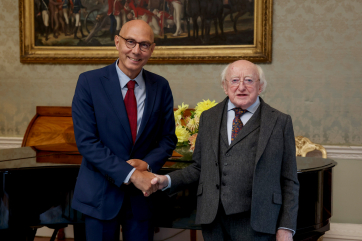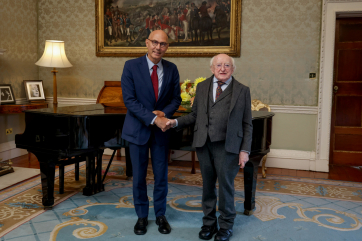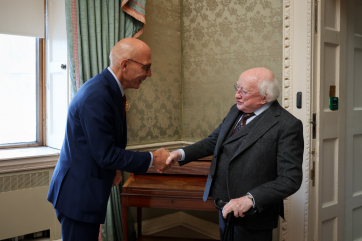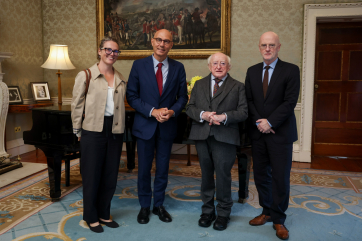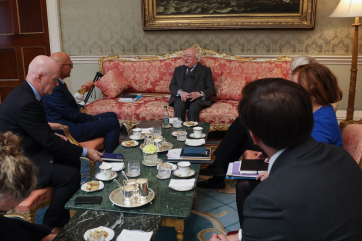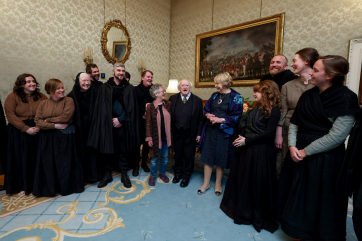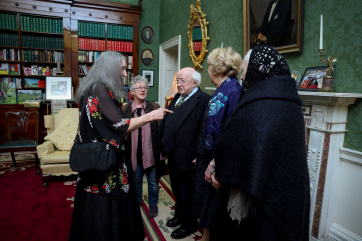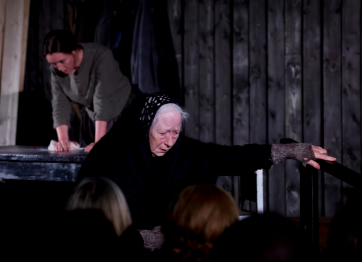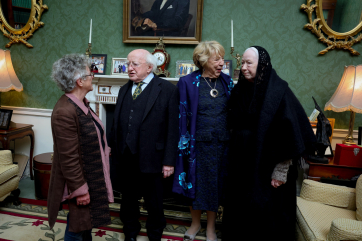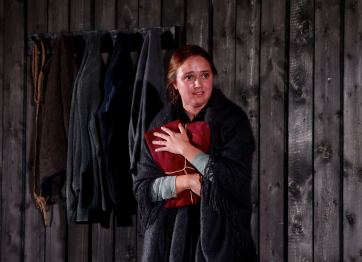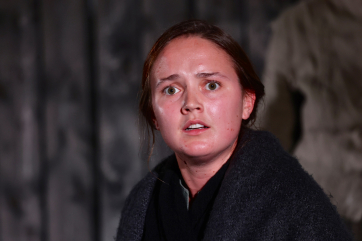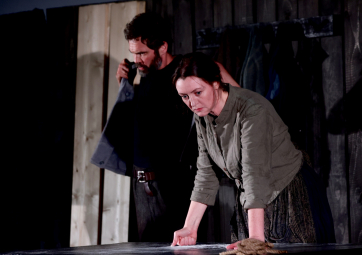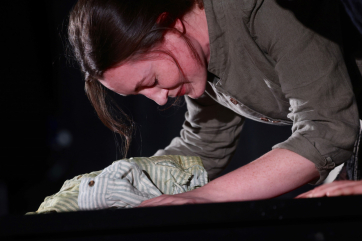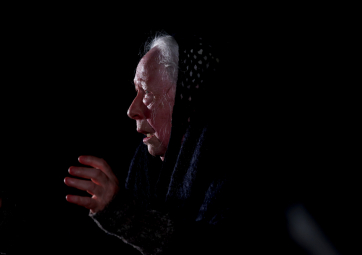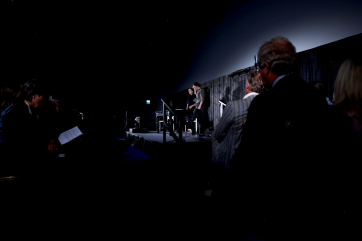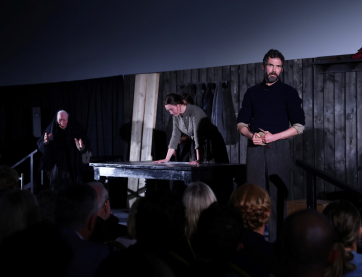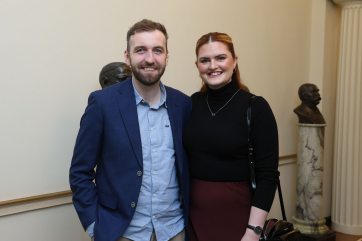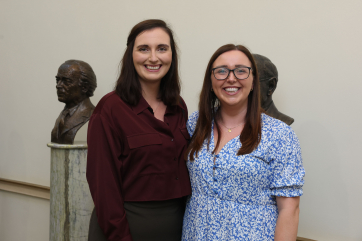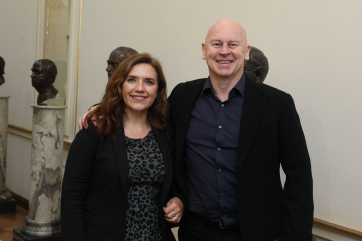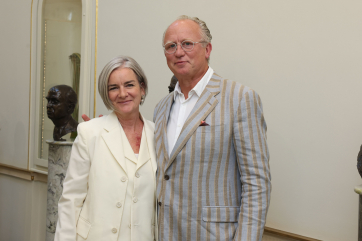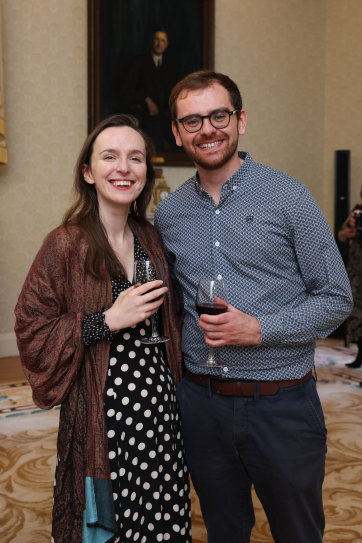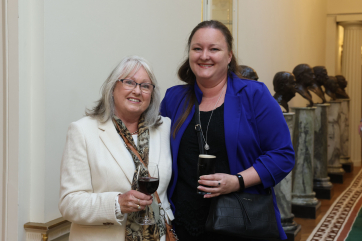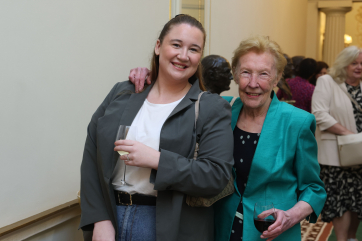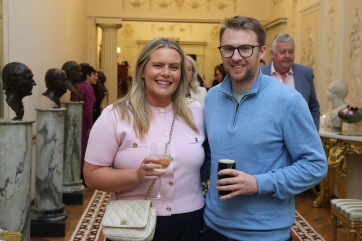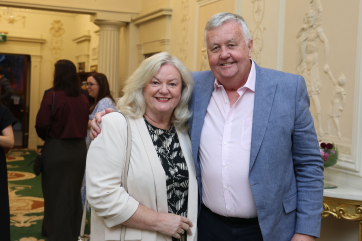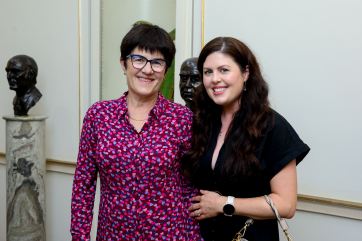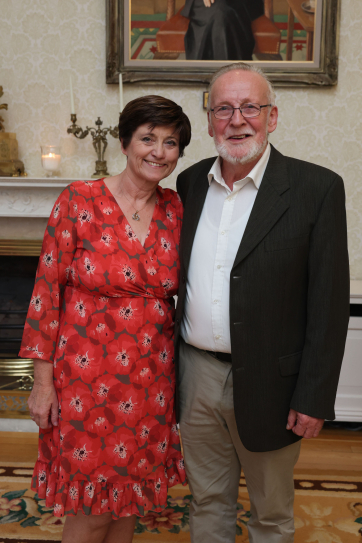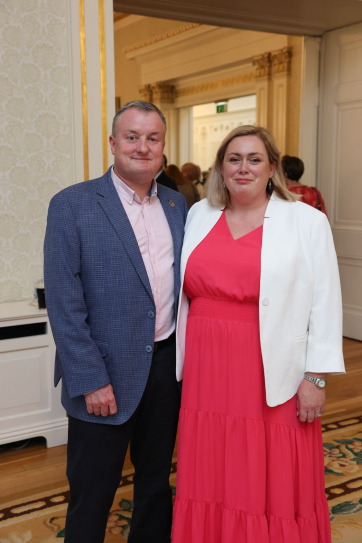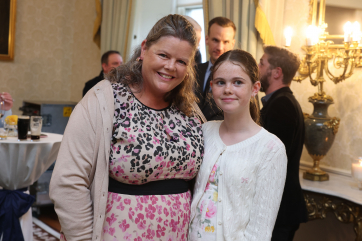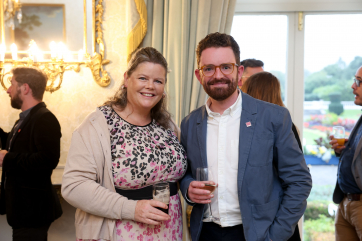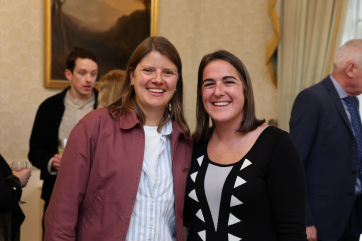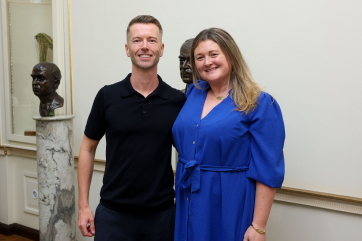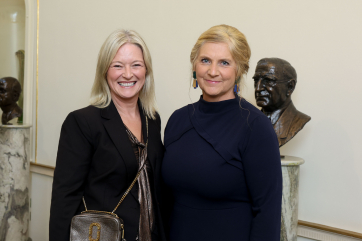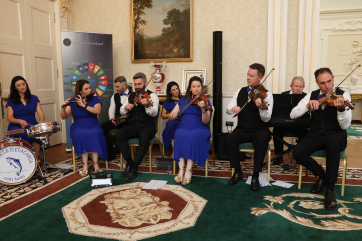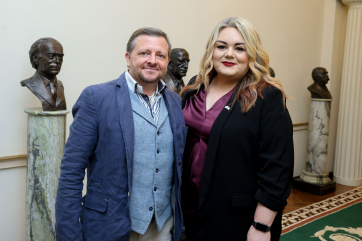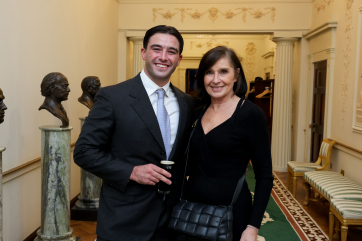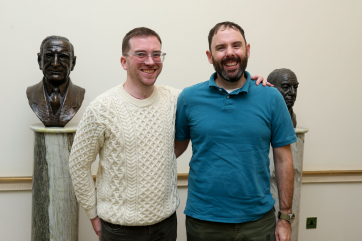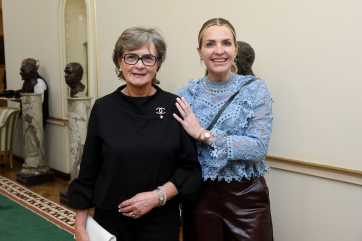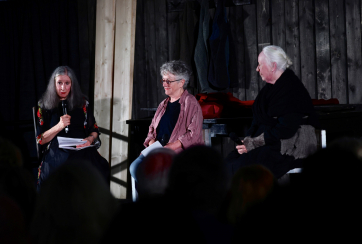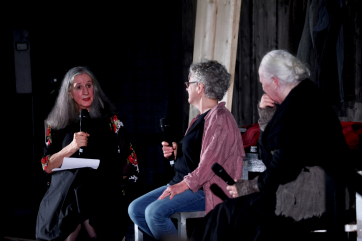Speech by President Michael D. Higgins at the 2025 National Ploughing Championships
Screggan, Co. Offaly, Tuesday, 16th September, 2025
It is a great honour to be here today in Screggan, County Offaly, as we open this year’s National Ploughing Championships.
Since I was inaugurated mar Uachtarán na hÉireann, Sabina and I have attended these Championships almost every year and we are always struck not just by the sheer scale of the gathering, but by the enthusiasm and the support that is revealed for every aspect of Irish rural life.
Last year a record-setting 244,000 people attended the Ploughing, and 2025 could see a quarter of a million visitors attending for the first time.
May I pay tribute to the National Ploughing Association and in particular to its Managing Director, the remarkable Anna May McHugh, for another superbly organised event that brings together not only many of the old favourite elements to the programme, but also some new attractions in 2025. For over 50 years Anna May’s leadership of the NPA has ensured that these Championships continue to go from strength to strength, year to year. Congratulations to you and all the team at the NPA.
This festival is in itself a testament to the vibrancy and the organisational talent in Ireland’s farming community, and I would like to thank all the farmers involved for their generosity and community effort in facilitating the provision of a site for all that happens.
I have just been down to see some of the ploughs and the horsemen at work. How wonderful it is to see our ploughmen continue to cherish their horses, as the staging of the horse plough classes shows. They do so out of love for that beautiful animal, the horse, but also because they – and our loy diggers alike – take pride and pleasure in keeping alive, and even perfecting, an ancient human skill.
As I watched, I was minded to recall the beautiful sculpture in Áras an Uachtaráin, The Plough and the Stars, a cultural icon of the foundation of the State, so generously gifted by sculptor John Behan and Gerry King, a legendary figure in the world of ploughing. It is a commemoration of the 1913 Lockout of Dublin workers, but it also speaks to the deep cultural and symbolic role of the plough in Irish life.
The excellence of skill and talent in ploughing, as demonstrated by competitors, is a core aspect of the Ploughing. Yet this event is, of course, much more than that. It constitutes the national stage for showcasing all things agricultural — new techniques, new technologies, safety, sustainability, and the best of Irish farming.
It reminds all of us who visit of the importance of connection with nature, of the strong community bonds that are often found in rural settings, of how important it is that we preserve as a core element of our unique cultural heritage, the connection to the land with all of its reminders of responsibility and resilience. On my previous visits to these Championships I have often taken the opportunity of reflecting on the issues affecting the future of farming here in Ireland.
There is a huge difference between recognizing farming as a way of life, by those actively engaged in land cultivation, intimately connected with the soil, the hedgerows, the fields, who work the soil, who tend to animals; and any narrow alternative such as mass production for an unregulated market, or indeed those who see the purchase of farms as a means of building a property portfolio, as a line in speculative finance.
Farming, and the family farm in particular, is at the very core of Irish rural life. It has an intrinsic value that goes far beyond the economic. It involves a deep connection to the land and nature, shaping daily routines, community interactions, and even identity; part of a lifestyle characterised by self-sufficiency, fostering resilience and promoting sustainable practices.
Retaining and supporting a family farm model is of vital importance to the future of our country and to the future of our rural communities. Farming as a way of life must be cherished, protected, supported, nurtured, sustained and enjoyed. Research indicates that this can be best achieved with appropriate regional policies and sufficient supports for farm families, whether it is in the field of environmental protection or in terms of market structure. I say this as farming presents unique challenges, including financial pressures, the physical demands of the work, and the emotional toll of potential farm crises.
Succession in farming must be at the centre of our vision of the future of farming in Ireland too. Ensuring that our young people can take up the mantle requires financial, social, and educational support so that they may see a sustainable and fulfilling future in farming; one that is a living, viable choice for generations to come.
The recognition of the commitment and achievement of young farmers, such as Cork’s Aileen Sheehan, who recently became the first woman to be named Young Farmer of the Year, inspires us with hope. Her success speaks to the new opportunities for women and young people, and to the renewal of farming as a profession of pride and promise.
Young people’s presence here at The Ploughing is a testament to the enduring importance of farming and rural life in Ireland, but it is also a reminder of how our shared future depends on their efforts and commitment. We must ensure that we leave them a world that is sustainable, flourishing and peaceful.
The Ploughing, therefore, offers us all an opportunity to explore and reflect on how we can continue to play our part in a new form of ecology that we must bring into being if we are to avoid the bequeathment to the next generations of a hostile, volatile and denuded planet.
Through our joint agreement of the United Nations Sustainable Development Goals a decade ago, we in Ireland have a number of ecological, social, and economic goals that we have set for ourselves, as a country and as part of the global community.
The agreement on these Goals, along with that made in Paris the same year on climate change, released an inter-generational feeling of hope that we were finally beginning to change our assumptions about the relationship between society, economy and ecology towards a more balanced relationship infused with an ethical consciousness.
We still have great challenges locally, nationally and globally. The 2024 Report on the Sustainable Development Goals makes for sobering reading. It found that only 17 percent of the targets are on track, nearly half are showing minimal or only moderate progress, and progress on over one third has stalled or even regressed, including critical objectives related to poverty, climate and hunger. We have so much work to do.
The Ploughing reminds us, too, that the production of food, the ethical responsibility of sustaining life, remains one of the most important of all human activities – an act of responsibility to each other and to generations yet to come.
We live in a country that has an abundance of food and is rich in agricultural produce. Yet, according to the Central Statistics Office, in 2022, 9 percent of the Irish population (one-in-eleven people) experienced food poverty, with 6.2 percent experiencing severe food deprivation (in 2021). What a shocking pair of statistics these represent in a country that is so rich in terms of its material wealth and resources.
Globally, the latest United Nations Global Report on Food Crises informs us that dangerous levels of acute hunger affected a staggering 295 million people in 53 countries in 2024, the sixth year in a row that the numbers have risen.
Over 582 million people are projected to be chronically undernourished by 2030, according to the UN, while 2.8 billion people were unable to afford a healthy diet in 2022.
How shocking it is that the number of people facing famine or risk of famine more than doubled between 2023 and 2024, driven by conflict, with over 95 percent in Gaza and Sudan, and with populations also experiencing catastrophic levels of acute food insecurity in South Sudan, Haiti and Mali.
Severe droughts resulting from climate change continue to impact large swathes of Africa, resulting in almost 300,000 children being threatened by severe acute malnutrition in six drought-affected countries.
We must face up the simple fact that debt is strangling these nations and their ability to feed themselves in a sustainable manner. How shameful it is that all of this is taking place in a world where military expenditure has soared to unprecedented levels, reaching $2.7 trillion in 2024—the highest ever recorded. When one thinks of what could be achieved if such sums were not deferred to preparations for war.
The entirely preventable manmade Famine and dire humanitarian situation in Gaza in particular and the ongoing breaches of international law and human rights obligations exhort an immediate call for action and assistance from the international community to ensure that no more time is lost, that there is no further loss of life as people exercise the impossible choice between risking their lives to access aid or starving. We must all lend our voices of support in basic human solidarity.
In these difficult times, we must ensure that the rhetoric of war and the shocking escalation of armaments and the industrial-military complex do not sideline the agreements we have made on poverty, inequality, climate action, and hunger.
With the latest projections indicating a global population of 10 billion by 2050, one of the greatest challenges we face is to achieve Sustainable Development Goal Number 2: the goal to end hunger and achieve food security.
It is a challenge that calls for new, inventive solutions, solutions that will provide the food security we need, meeting what is nutritionally sufficient for all of the world’s people.
I have spoken on many occasions of how, in the challenge to deliver successful food systems, we need to see what is an emerging global consciousness reflected in new, innovative models of food sufficiency, models that recognise the links between food insecurity, global poverty, debt, climate change and biodiversity loss.
May I take this opportunity to praise the efforts of our farmers for playing their part in facing the challenges of the future together, and who are proving that balancing the needs of production with the urgent need to protect our environment is possible.
Change is not easy, but it is unavoidable for survival itself, and I applaud all of the efforts that are being made by our farmers towards creating a sustainable future.
May I encourage them to continue on this path by designing strategies of implementation, and lead the way in adopting sustainable practices that can be demonstrated as successes to the farming community, ones that safeguard our environment.
On a sad note, may I take the opportunity once again to extend my deepest sympathies to those of you who may be grieving loved ones who have so tragically lost their lives or suffered serious injuries on farms across the country.
Honouring those who have tragically died is best achieved surely by supporting all those who work to ensure that our farms and fields are not only places of nurture and growth, but also safe workplaces for farming communities.
Mar fhocal scoir, our farming communities, our farming families, have demonstrated the invaluable contribution of agriculture to Irish society and, in particular, to rural Ireland time and again throughout our history. I know that they will continue to do so in the future with the support of all the citizens of Ireland to build an inclusive, flourishing, compassionate and generous Republic.
Tá súil agam go mbainfidh sibh ar fad sult as Treabhdóireacht 2025, agus guím gach rath ar an ócáid.
[I hope you all enjoy Ploughing 2025, and I wish the event every success.]
Go raibh míle maith agaibh go léir.

